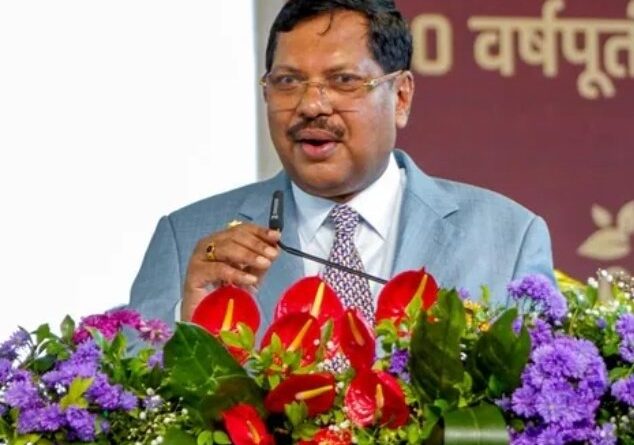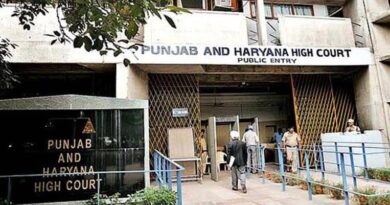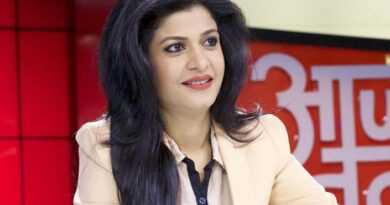Shocking Incident in Supreme Court: Lawyer Attempts Shoe Attack on CJI BR Gavai Over Sanatan Dharma Remarks
Chaos in the Court of Justice: A Shoe-Hurling Protest Over ‘Insulted’ Sanatan Dharma Shakes Supreme Sanctum
New Delhi, October 6, 2025 – In a brazen act of disruption inside India’s highest judicial forum, a lawyer attempted to hurl a shoe at Chief Justice of India (CJI) BR Gavai during a routine hearing on Monday. The incident, which unfolded in the august halls of the Supreme Court, has sparked widespread outrage and reignited debates over religious sensitivities and courtroom decorum.
The dramatic episode occurred while CJI Gavai, heading a bench, was presiding over a case. Eyewitnesses reported that the lawyer, identified as Rakesh Kishore—a registered advocate with the Supreme Court Bar Association since 2011—approached the CJI’s desk, removed his shoe, and made a clear attempt to throw it. Alert security personnel swiftly intervened, apprehending the man before any harm could be done. As he was escorted out, Kishore reportedly shouted, “We will not tolerate the insult to Sanatan Dharma!”
Unfazed by the chaos, CJI Gavai addressed the stunned courtroom with remarkable composure. “Do not be disturbed by this. I am not disturbed either. These things do not affect me,” he urged the assembled lawyers, quickly restoring order and proceeding with the proceedings. The bench also included Justice Vinod Chandran, who later quipped about social media’s role in amplifying controversies, dubbing it “anti-social media.”
Roots of the Fury: The Khajuraho Idol Controversy
Investigations point to simmering resentment over CJI Gavai’s remarks in a September 16 hearing on a petition seeking the restoration of a 7-foot-tall decapitated idol of Lord Vishnu at the Javari (Vaman) Temple in Khajuraho, Madhya Pradesh—a UNESCO World Heritage site renowned for its exquisite architecture.
The idol, believed to have been damaged during Mughal invasions centuries ago, has long been a point of contention. Petitioners argued that its fragmented state prevented worship, violating devotees’ rights and the temple’s sanctity. Dismissing the plea, CJI Gavai had remarked, “Go and ask God to do it himself. You claim to be devout followers of Lord Vishnu—pray to him directly.” He added that the idol should remain as is, and worshippers could visit other temples if needed.
The comments went viral on social media, drawing accusations of insensitivity toward Hindu sentiments. On September 18, amid backlash, CJI Gavai clarified, “My remarks have been misrepresented online. I respect all religions.” Solicitor General Tushar Mehta defended him, noting, “Social media exaggerates everything—Newton’s third law says every action has an equal reaction, but here it’s disproportionate.” Senior advocate Kapil Sibal echoed concerns about online harassment faced by lawyers.
Vishwa Hindu Parishad (VHP) national president Alok Kumar took to X (formerly Twitter) to call for restraint: “The court is the temple of justice. It is our duty to maintain faith in it and exercise restraint in speech, especially within its premises—this responsibility lies with litigants, lawyers, and judges alike.”
Broader Implications for Judicial Sanctity
This incident underscores growing tensions between judicial pronouncements and religious fervor in India. The Javari Temple, the first in Khajuraho viewable in full side profile, features depictions of all Vishnu avatars but remains off-limits for worship due to the idol’s condition. Authorities have yet to announce formal charges against Kishore, but the Supreme Court Bar Association is likely to review his enrollment.
As the nation grapples with the fallout, the event serves as a stark reminder of the fine line between free expression and contempt of court.
#SupremeCourt #CJI_BR_Gavai #SanatanDharma #KhajurahoTemple #JudicialControversy #IndiaNews #ReligiousSentiments #CourtroomDrama #VishnuIdol #VHP




